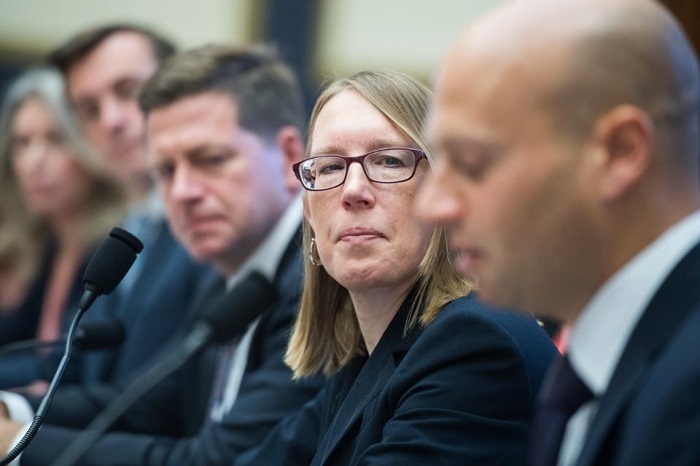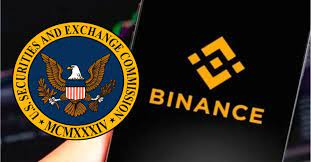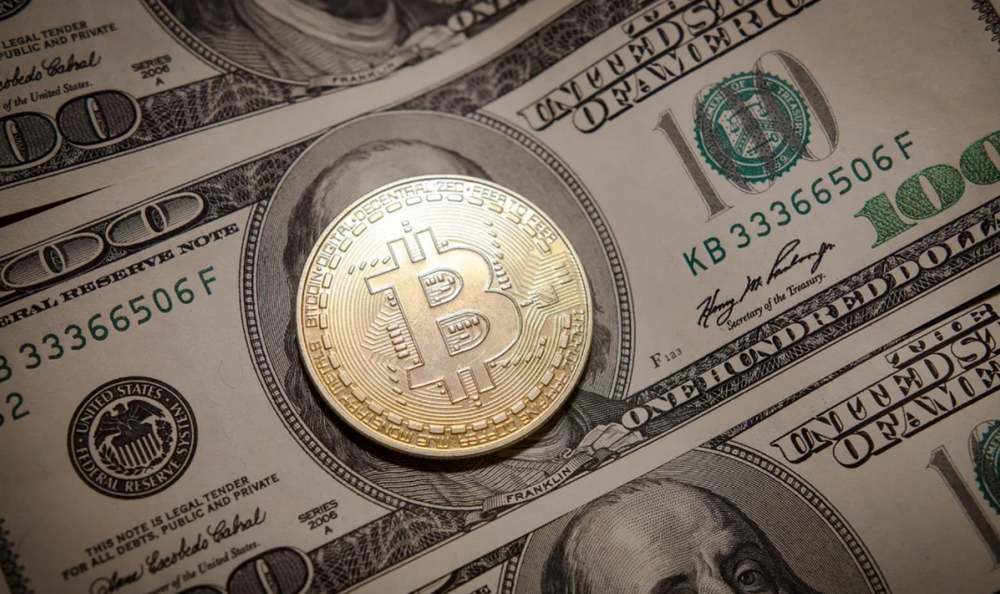Flexible policies can encourage innovation, an interview with Hester Peirce, a "crypto old godmother"
This article from Forbes , the original author: Jason Brett
Odaily Planet Daily Translator | Moni

Last Thursday (February 6), Hester Peirce, a Commissioner of the United States Securities and Exchange Commission and affectionately known as the "crypto godmother" by the crypto community, published an article entitled "Blank Operation: Filling Regulation and Deregulation" at the International Blockchain Conference A speech on "Running On Empty: A Proposal To Fill The Gap Between Regulation and Decentralization" quickly caught the attention of the crypto community.
- US Treasury Secretary: FinCEN will release new crypto regulatory requirements
- Opinion: Bitcoin mining main force is shifting from China to the US and Canada
- Crypto supporter Andrew Yang withdraws from 2020 U.S. presidential race
In fact, the degree of decentralization of many new cryptocurrency projects has changed over time, but at the initial stage, the digital tokens distributed by these projects to the network can often be classified as securities, so in the United States It is almost impossible to build a decentralized network under the current regulatory framework. To address this, Hester Peirce proposed a "safe harbor policy" of a 3-year grace period for crypto companies. Indeed, the ability to see regulators innovate to adapt to market changes and adjust their policies is always a welcome sign.
Jason Brett worked for the Federal Deposit Insurance Corporation (FDIC) during the U.S. financial crisis and is currently a contributor to Forbes Magazine. He recently spoke with Hester Peirce about his Safe Harbor Policy for crypto companies . Let ’s take a look at the content of this interview with Star Jun (WeChat: o-daily):
"Forbes": In September 2019, all five SEC commissioners testified in Congress. At that time, your testimony said that you believe that according to current laws, the SEC has the right to build a "safe harbor", but you I am also very conflicted about whether to build this policy. When you testified in Congress, did the SEC already communicate internally about the "safe harbor" policy and basically reached a conclusion?
Hester Peirce: Yes, I did think about it, and I think the SEC can do it. Because the Securities and Exchange Commission has extensive immunity under the Securities Act. With this in mind, the situation has not changed as much as I thought, but it is not completely without problems, and I look forward to further exchange of views with some lawyers.
"Forbes": So how does the SEC make this "safe harbor" a reality?
Hester Peirce: Any clarification of the proposal is valuable-I hope to get initial feedback in the first step and work with my colleagues to study the feedback so that we can confidently say to the crypto company: "These It ’s been reviewed, and it will work and achieve your goals. ”Then, the SEC can formally submit a Safe Harbor bill and seek public comment to finalize the rules. You've worked with regulators before, so you know for sure that these jobs take time.
Forbes: What do your colleagues want to achieve?
Hester Peirce: They hope that the problem of asymmetry of information can be corrected. The issuer of the token should make full disclosure at the operational level to ensure that investors can make the correct purchase decision, and do not mix irrelevant information. SEC commissioners have seen many poor token issuance projects … The most important thing here is to prevent fraud. With Safe Harbor, we can distinguish good projects from bad projects. If you are really serious about building crypto projects, you can clarify to the US Securities and Exchange Commission what you are doing and take full advantage of Safe Harbor.
Forbes: Can you ensure that "pirates" do not break into safe havens?
Hester Peirce: If you are frank and have no malicious information, no one will look at you with evil motives, and it is easy to identify this in a safe harbor.
Forbes: Why are you so interested in helping the decentralized crypto ecosystem flourish? Do you think the theme of this International Blockchain Conference is consistent with the mission of the US Securities and Exchange Commission? Or from a broader perspective, what kind of social benefits do you hope to gain from a mature crypto market?
Hester Peirce: As a regulator, it's important to be flexible in policy if you want to encourage innovation. In my opinion, the launch of Safe Harbor is an attempt by the SEC to explore innovation. I'm not a blind proponent of technology or tokens, but my confirmation is that decentralization is good because some people have never been able to access modern financial services, and with the help of new technologies, they have been denied access in the past. You can now enjoy better financial services. This means that the token project party can bring people from all over the world together in a new way. I think it is very promising.
"Forbes": Can this safe harbor meet the mission of the US Securities and Exchange Commission, which is to promote capital formation first, and then carry out an orderly fair market and investor protection.
Hester Peirce: That's a great question. To a certain extent, the "safe harbor" is actually a protection for investors, including keeping investors open. It's a grey area here, and it's mainly helping regulators find the right line of jurisdiction. As a regulator, one of our roles is to define where supervision should be and where supervision should not be. However, it is often difficult for token projects to find clear boundaries, but why not try to define supervision in meaningful areas?
Forbes: What did you say to those in Congress? They believe that cryptocurrencies often involve terrorist financing, money laundering, cartels, and even bring illegal drugs into the United States. Does Congress recognize you as a safe haven for this technology?
Hester Peirce: If we build a framework for legitimate token projects to try, safe harbors will work. Safe Harbor can help us find the real problem and identify criminal projects. I heard you asking this question a little bit frustrating, because almost everything you think is good can be used to do bad things, and cash can also be used for crime. Some people use this method to buckle their hats. There is indeed a problem of speculation and fraud, and there must be some illegal behavior, but I see more of its development potential.
"Forbes": For ordinary merchants, they may have heard of cryptocurrencies more or less, but why is buying and selling cryptocurrencies different from traditional stock and bond sales?
Hester Peirce: Tokens are completely different. Stocks or bonds are traditional equity or debt equity. They are different from the tokens being used in the network or the tokens that will be used in the network at that time. The "entry" necessary for you to participate in the network when you pass a token, so it is unclear whether securities laws can govern such transactions.
"Forbes": Most of the time, the SEC was always defensive against the crypto community, but now you tell them to call you or email you to discuss encryption. In fact, SEC commissioners are seeking advice to find the best way to deal with the crypto token business model. Can you tell us how to provide feedback to the SEC?
Hester Peirce: You can send an email to [email protected] or enter FinHub of the US Securities and Exchange Commission to provide feedback. We believe that the staff involved in handling the problem will benefit from your suggestions.
"Forbes": You told a story in your speech: more than twenty years ago, you lost your way in New Jersey, when it was late and it was pouring rain. But at this time your car is out of gas. You find a gas station not far ahead, but realize that you are in New Jersey. According to the New Jersey Retail Gasoline Distribution Safety Act of 1949, only gas stations are allowed. Employees refueling a car, and other people refueling, even if it is illegal, will be fined $ 50-250 by the New Jersey Department of Labor and Workforce Development, although this is not a criminal offense.
Hester Peirce: Oh, right.
"Forbes": In terms of law, New Jersey is the only state in the United States that makes it illegal to pump gas at a gas station. It is said to be the same in Brazil and South Africa. Some people think that such a law may be set up to prevent gas workers from losing their jobs. New Jersey has enacted this law for the following reasons: 1. When customers pump by themselves, especially pregnant women, they will be exposed to toxic gasoline fumes and endanger health; 2. In states that provide artificial refueling, Gasoline charges are much higher. If self-service refueling services are provided in these states, the income of low-income people is often not guaranteed, and these people are usually subject to greater economic pressures, while also facing the inconvenience and danger of refueling; 3. Even at gas stations that provide both self-service refueling and manual refueling services, many people still choose self-service refueling because of the higher cost of manual refueling, which makes it easy to put car owners and other drivers in danger. , And some unnecessary and expensive maintenance costs due to deferred maintenance; 4, self-service gas stations received The higher general liability insurance rates are taken, which also reflects the fact that when car owners leave the car to refuel or come into contact with other flammable liquids, they will face greater inconvenience and danger, such as being more prone to robberies, Falling, and other personal injury risks, and some defective car owners (such as the disabled and the elderly) get off the car to fuel themselves will cause unnecessary trouble. If you compare these rules with the SEC's regulation of token programs today, how do you react?
Hester Peirce: The token project is only part of the regulatory work of many industries of the US Securities and Exchange Commission. The token project should be well disclosed to investors, so that it can meet the investor protection requirements of regulators and make investors better Make investment decisions. As a supervisor, I stand on the side of the supervised to consider issues and provide you with suggestions. The risk of a token project is high. As a regulator, I don't know your situation, your investment portfolio, your future plans, etc. Every investor should keep his eyes wide open and be skeptical of everything. We are not the kind of very good regulators.
We will continue to update Blocking; if you have any questions or suggestions, please contact us!
Was this article helpful?
93 out of 132 found this helpful
Related articles
- Free and Easy Weekly Review | How Selfish Mining Strategies Affect Every Half Coin
- Donation, medical treatment, rescue, community prevention and control, can blockchain become a new weapon to fight the epidemic?
- People's Network: Blockchain technology helps make charity more transparent
- Ethereum 2.0 testnet is about to launch, can host 100,000 validators
- Viral "whistleblower" plan: a regional grassroots linkage early warning network based on blockchain
- Popular science | How to design Optimistic Rollup to achieve sustainable expansion and decentralization?
- Research Report | The biggest hidden danger of blockchain security in 2020 is it






